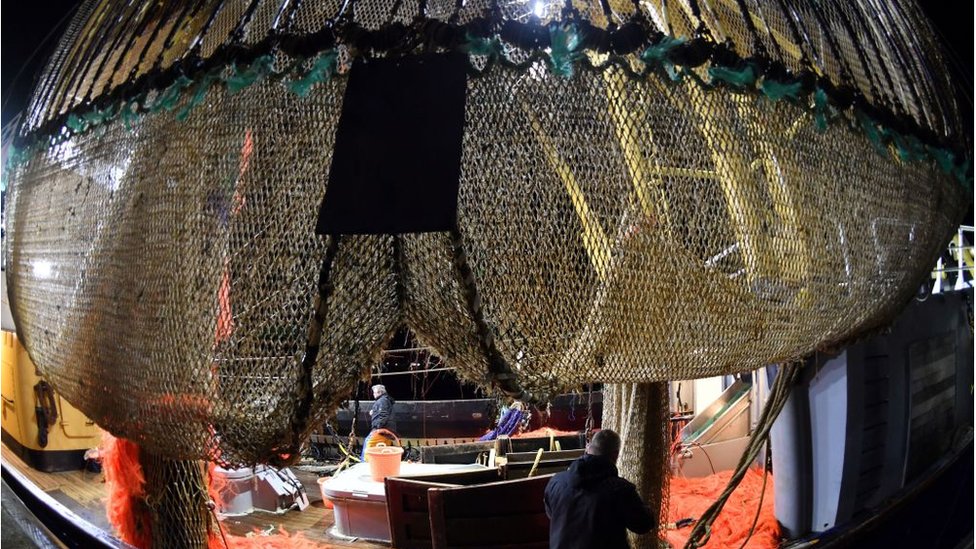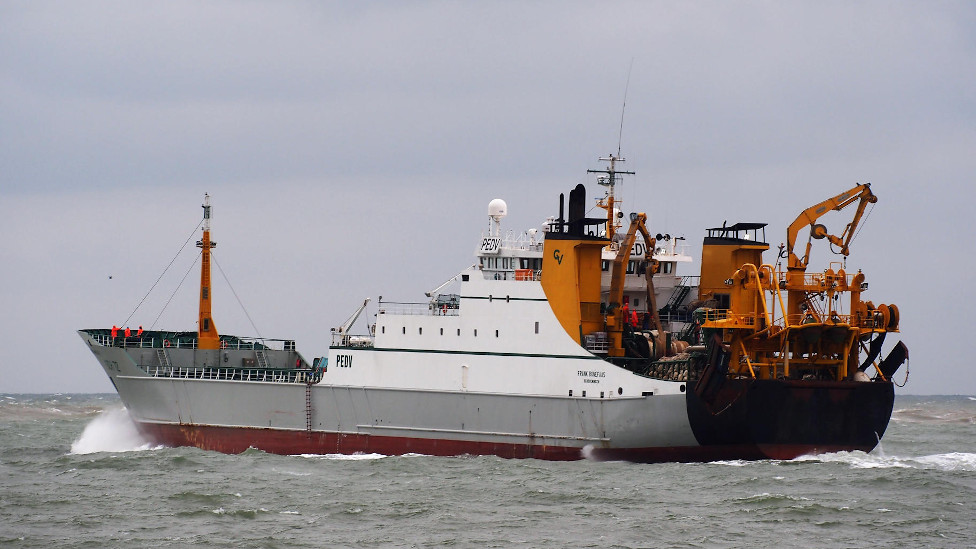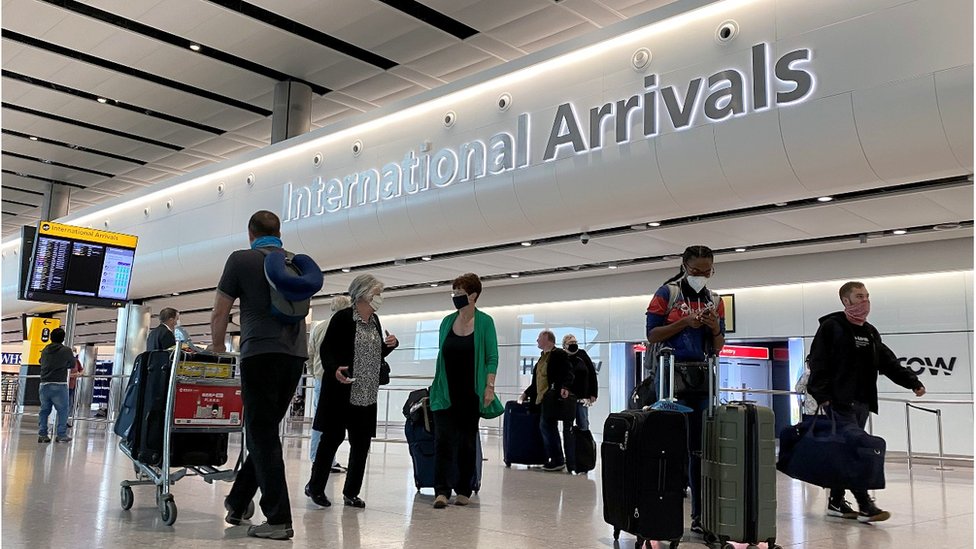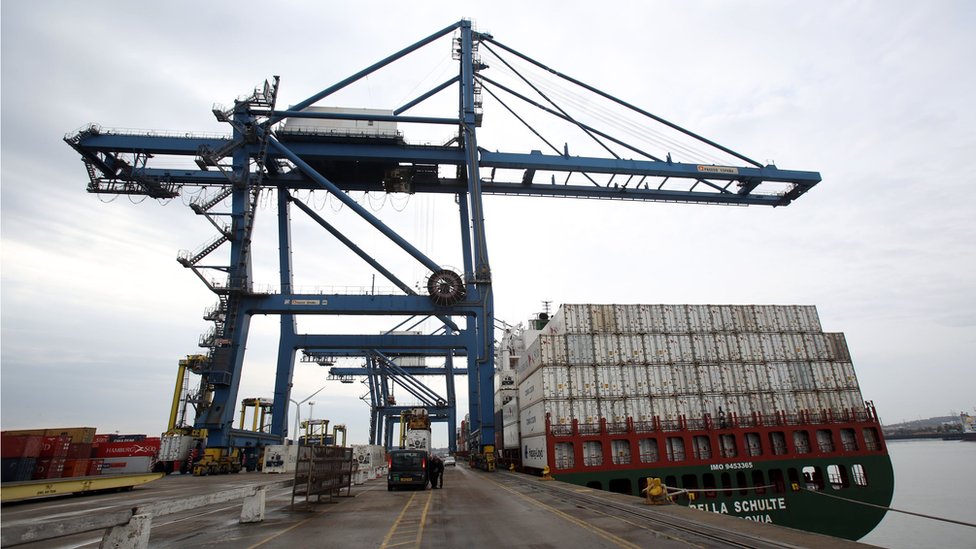BBC News 3 January 2021 - by Reality Check Team
Boris Johnson was asked on the BBC's Andrew Marr show how "ordinary voters" in a place such as Leigh in Greater Manchester (which voted Conservative in the 2019 election) would benefit from Brexit.
"They've already got substantial amounts of money coming back into this country, as a result of leaving the EU"
We're not sure which money he's referring to here (we asked the government but it did not clarify this).
A great deal was made in the EU referendum campaign about the contributions to the EU budget that would no longer have to be made after Brexit.
The UK was making its regular contributions to the EU budget until the end of 2020 (as the two sides were still in a transition period), so the amount saved since will not be huge.
Also, the UK is still paying money to the EU as part of the divorce bill, covering things like spending that the EU committed to while the UK was a member, but has not yet funded - along with contributions to the pensions of EU staff.
The Office for Budget Responsibility expects that the UK will be contributing about £7.1bn this year, down from last year's contribution of £8.2bn.
That's an average saving of about £3m a day this year - so £9m so far.
"One of the first things we've done on day one is get rid of pulse trawling"
Pulse trawling, which involves the use of an electric current to force fish off the seabed making them easier to catch, was indeed banned in UK waters on 1 January 2021.
But France and Belgium - both EU member states - had already outlawed the practice in their territorial waters (which stretch up to 12 nautical miles from the coast). The UK could have done the same when it was still a member of the EU.
An EU-wide ban was also passed into law in June 2019 and is due to come into full effect on 1 July 2021.
Pulse fishing has become less common over the past few decades in EU waters.
There were eight vessels - seven from the Netherlands and one from the UK - using the technique in UK waters between January 2019 and June 2020, according to ocean conservation charity the Blue Marine Foundation.
Four were fishing within UK territorial waters and therefore could have been banned by the UK, before it left the EU.
But the other four boats, which were operating within the UK's Exclusive Economic Zone (which stretches up to 200 nautical miles from the coast) but beyond UK territorial waters, could not have been outlawed, while the UK was in the EU.
Now, the UK is an independent coastal state so it can ban them.
"We will be able to ban these huge hoover trawlers that come in and hoover everything off the bottom of the sea"
Mr Johnson is likely referring to super trawlers here (as "hoover trawlers" isn't a widely recognised term). Again, we asked the government but it did not clarify this.
Super trawlers are typically defined as vessels over 100m in length - 25 of them fished in UK waters in 2019, according to Greenpeace.
Most had a Russian or Dutch flag, except one vessel - the Frank Bonefaas - which sails under a British flag but is majority Dutch-owned.
Now that the UK has left the EU, it can ban super trawlers from fishing in UK waters, but - under the terms of the Brexit trade deal - this rule must apply equally to UK and EU boats.
This is further complicated by a section of the agreement, which secures access to the UK's territorial waters (between 6-12 nautical miles) for any vessel active in those waters between 2012-16. This measure would - in theory - apply to several super trawlers.
The Marine Management Organisation has already granted temporary licences to at least seven super trawlers (six of which are registered in the EU) to continue fishing in UK waters beyond 31 December 2020.
"We've got control over our borders - a points based immigration system has already been established"
The points-based immigration system did go live at the start of the year as freedom of movement ended for EU citizens (and for UK citizens in the EU).
In future, EU citizens will have to have a certain number of points based on things like skills, to be allowed to work in the UK.
There will be some exceptions for people working in areas with labour shortages.
"One of the things you can do is have free ports"
This is a claim Mr Johnson has made before - we looked into it in 2019.
Free ports are small free-trade zones, sometimes called special economic zones, in which normal tax and customs rules do not apply.
In fact, there are more than 80 free ports in the EU (a point made by Andrew Marr) and the UK had them until 2012.
But they have to comply with EU rules that are designed to ensure fair competition between member states.
Supporters of free ports argue that these zones could be more beneficial for the UK once it is outside the EU.
But if the tax benefits given to companies operating inside them are too generous, they could in theory trigger action from the EU, under the terms of the new trade deal. Some trade experts argue that free ports could simply move investment from other parts of the UK.
A government spokesperson said: "free ports will empower regions across the UK to become hubs for international trade and investment."




